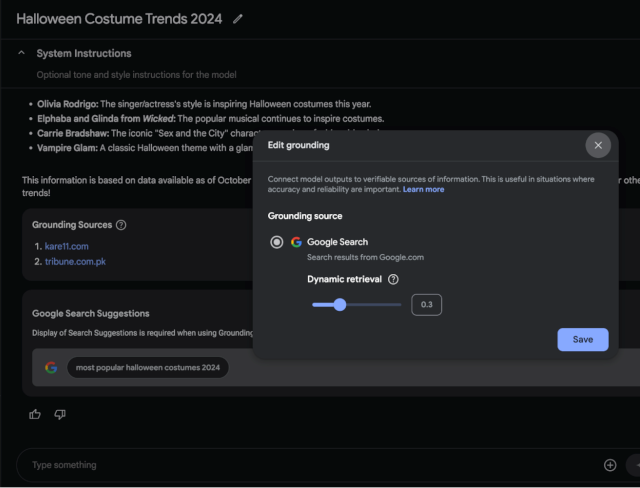Google is connecting "real-world" web sources to developer tools for its foundation AI model.
Google released Grounding With Google Search for its Gemini API and Google AI Studio, according to the company today.
Grounding With Google Search enables the Gemini API to return grounding sources, or in-line supporting links, as well as Google search suggestions along with responses.
The feature is designed to improve the accuracy and recency of responses from the Gemini model.
Google intends for the feature to support prompts that require "up-to-date information" from the web, allowing the model to answer questions it "couldn't have answered accurately otherwise" and get sources for the information.
The feature currently supports text prompts and all languages for Gemini models. It doesn't support multimodal prompts.
Google recommends that developers enable Grounding With Google Search for queries and applications requiring improved performance in several areas: reduced hallucinations; more up-to-date information; enhanced trustworthiness and traffic to publishers; and richer information.
The move by Google comes on the same day OpenAI released ChatGPT Search after sharing the prototype, SearchGPT, this summer. ChatGPT Search gives users "timely" answers with links to web sources.
Google team members demonstrate the grounding feature in this video:
